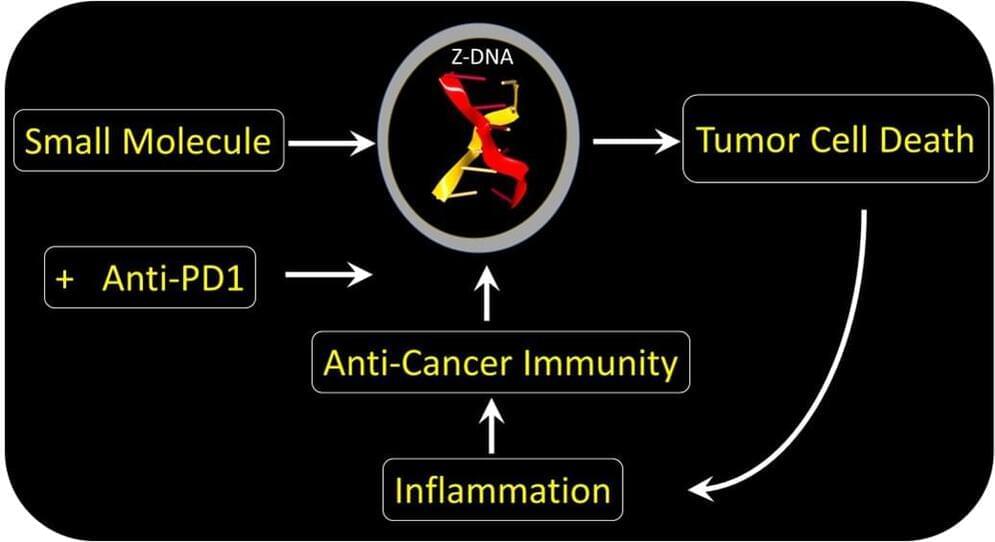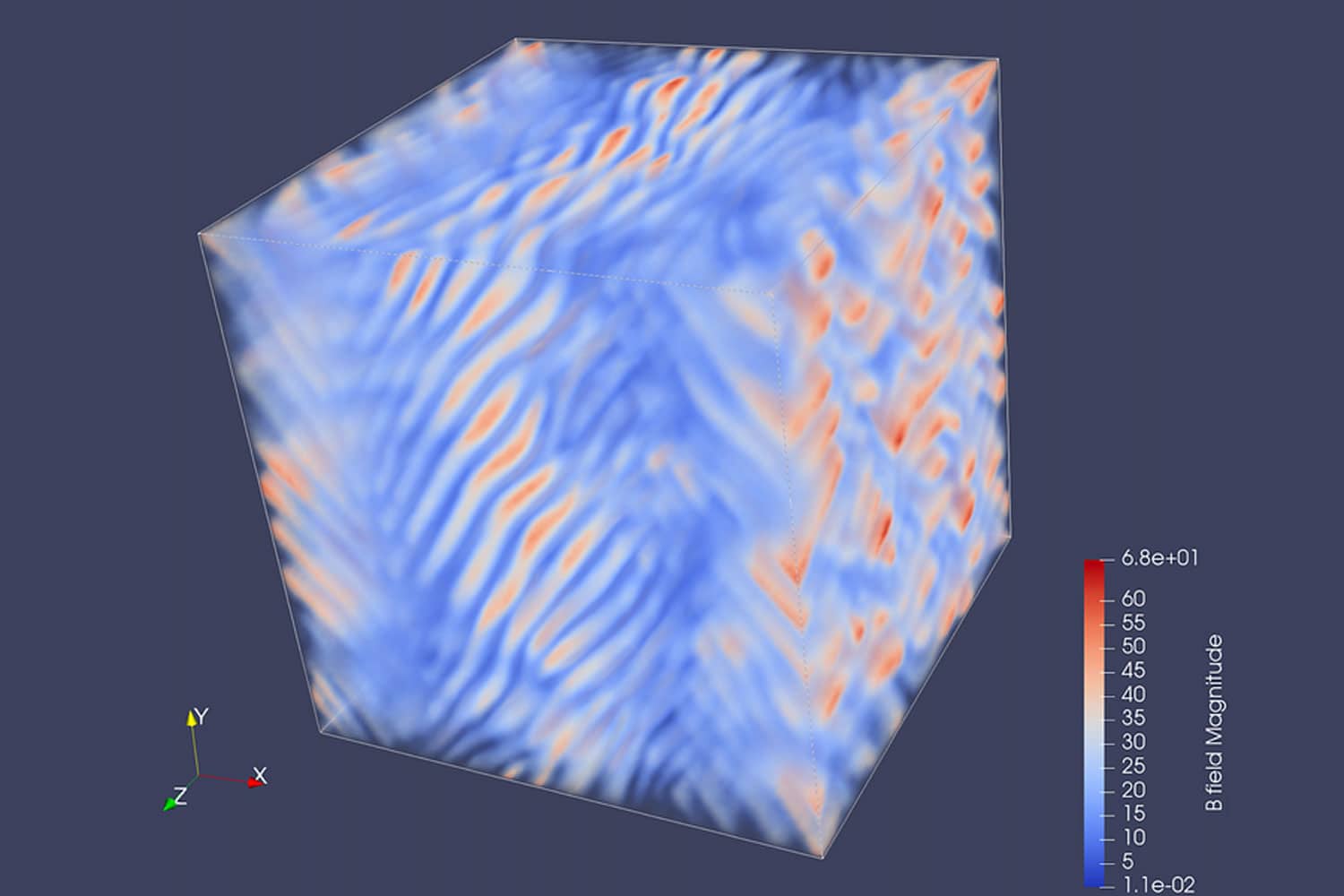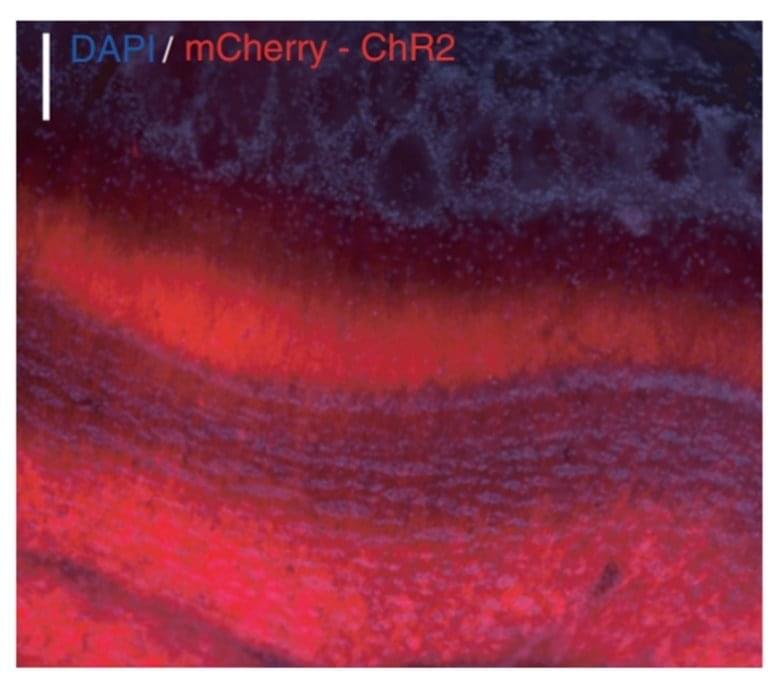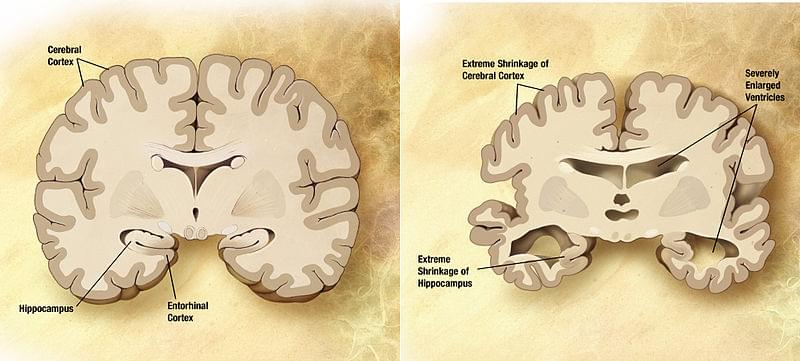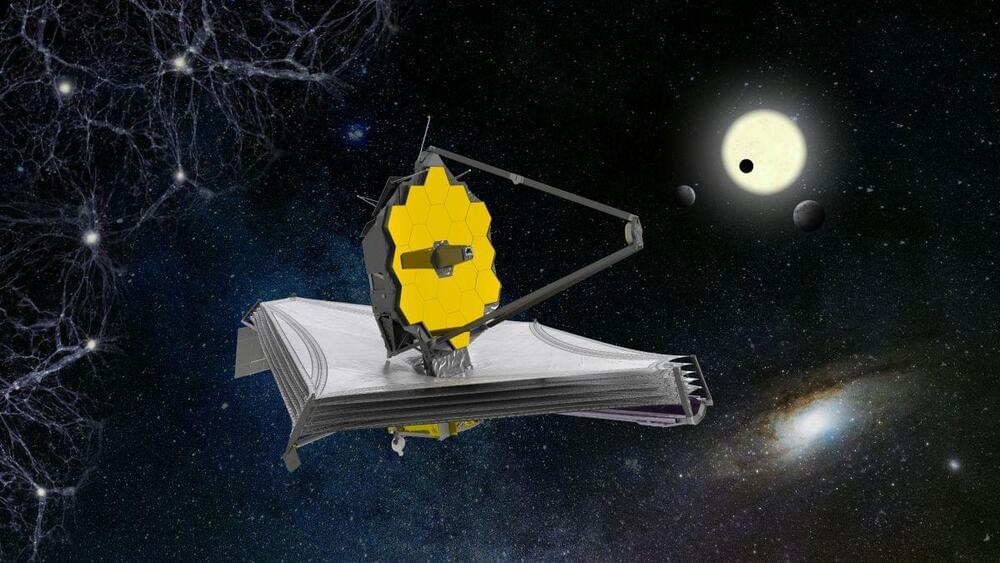In a paper appearing in Nature today, an international group of scientists report a new way to kill hard-to-treat cancers. These tumors resist current immunotherapies, including those using Nobel Prize-winning checkpoint-blocking antibodies.
The approach exploits Z-DNA. Rather than twisting to the right like B-DNA, Z-DNA has a left-handed twist. One role for Z-DNA is to regulate the immune response to viruses. The response involves AADR1 and ZBP1, two proteins that specifically recognize Z-DNA. They do so through a Zα domain that binds to the Z-DNA structure with high affinity.
The Zα domain was originally discovered by Dr. Alan Herbert of InsideOutBio, a communicating author on the paper. The ADAR1 Zα domain turns off the autoimmune response, while the other ZBP1 Zα turns on pathways that kill virally infected cells, as previously shown by Dr. Sid Balachandran, the other communicating author on the paper. The interactions between ADAR1 and ZBP1 determine whether a tumor cell lives or dies.
